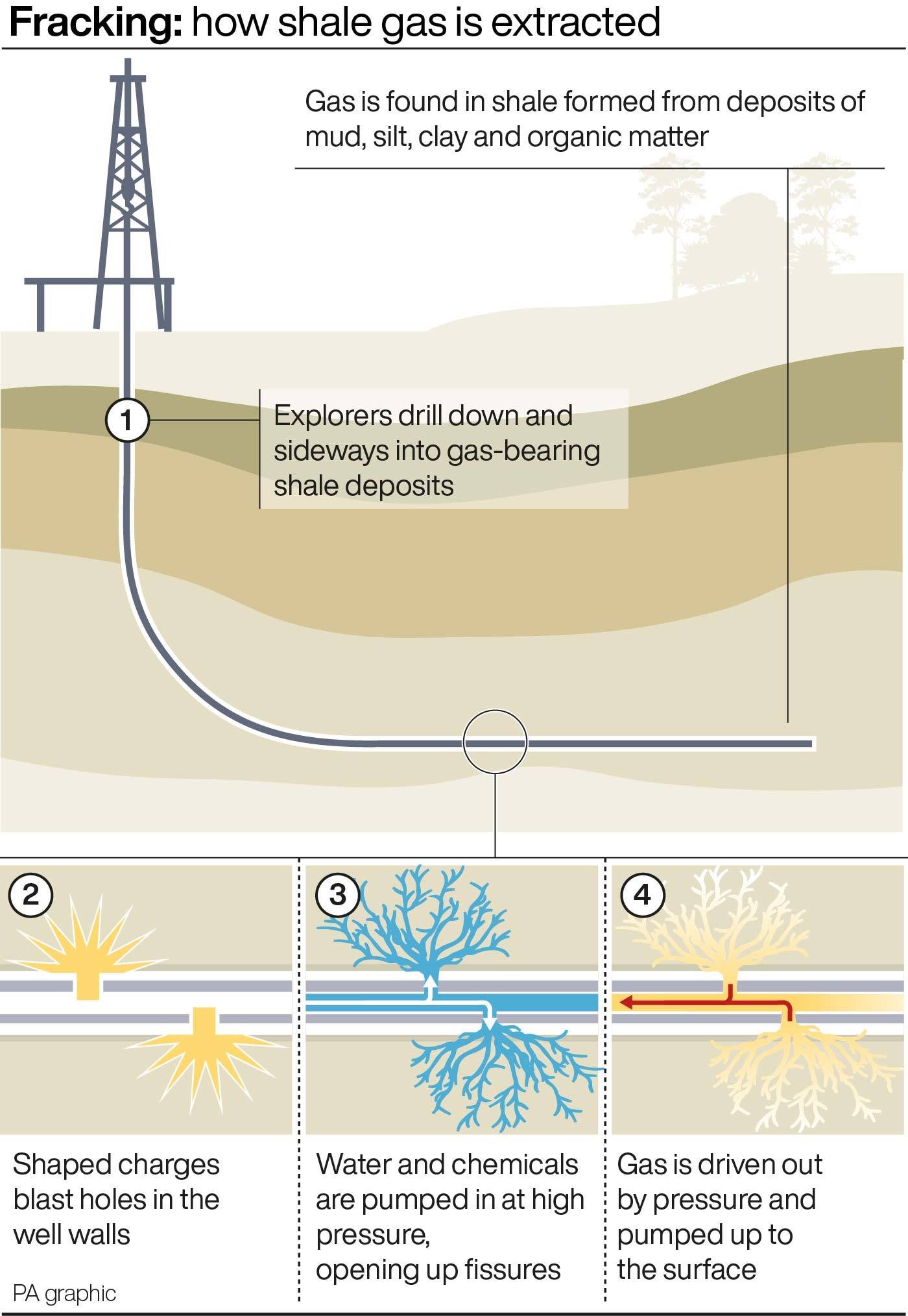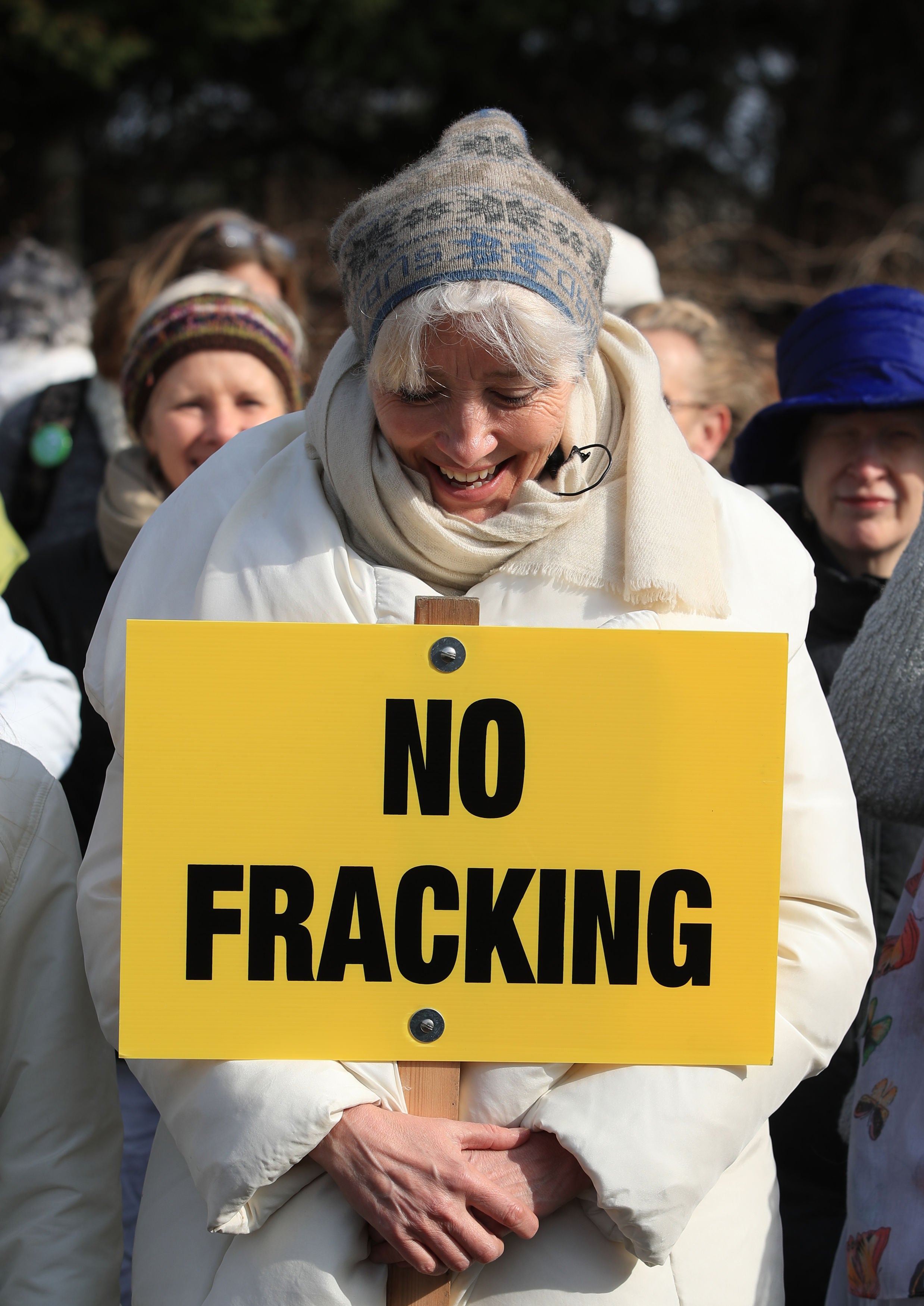Fracking firms push for easing of earthquake and planning rules ahead of ban lifting
Tremors above 0.5 on Richter scale should be allowed, industry says – and local objections bypassed

Fracking firms are pushing for earthquake limits to be relaxed and want local objections to be bypassed ahead of Liz Truss lifting the ban in England.
The new prime minister is expected to confirm the U-turn as early as next week – but the industry body has told The Independent the move will only kickstart the industry if new rules are brought in to make fracking easier.
They should include speeding up planning permission by allowing ministers, instead of local authorities, to approve projects as “nationally significant infrastructure”, it says.
And it wants the rules requiring drilling to stop if it causes tremors of 0.5 or more on the Richter scale to be ripped up, arguing tremors at this level occur naturally and are often imperceptible.
Fracking companies want parity with the geothermal energy and construction industries, which are allowed to create earthquakes of higher magnitudes than 0.5, they say.
“If the government just lifted the moratorium and didn’t offer comprehensive policy support, it would be very difficult to make an investment case,” said Charles McAllister, director of UK Onshore Oil and Gas (UKOOG).
He called for changes to the government’s “traffic light system”, arguing that stopping drilling after a tremor of 0.5 or more prevents testing for suitable fracking sites.
Mr McAllister said: “If the regulations on seismicity applied to shale gas development were applied to other sectors, such as the construction, quarrying or geothermal industry, they would not be able to operate in the UK.”
James Verdon, a senior lecturer at the school of earth sciences at the University of Bristol, said it was true that geothermal projects in Cornwall have generated similar-sized events without the level of public concern.

He also pointed to a study by Newcastle University published in 2015 which found that the maximum allowable levels of vibration for quarrying in the working day were 25 times larger than the estimated ground vibrations that would be generated by a 0.5 magnitude event caused by fracking.
But Friends of the Earth said the earthquake regulations “are there for a reason: to protect local communities and their environment”.
Campaigner Danny Gross pointed out Ms Truss has said fracking should only go ahead with community support, so it should not be made harder for local people to have a say.
A moratorium on fracking has been in place since 201 after a record 2.9-magnitude tremor was recorded near Cuadrilla’s test wells close to Blackpool.
Scotland and Wales had already turned their backs on the industry, which involves releasing natural gas from deep underground by blasting a mixture of water and chemicals into shale rock deposits.

Ms Truss is expected to lift the ban once the official mourning period for Queen Elizabeth II is over, despite the previous objections of Kwasi Kwarteng, her new chancellor, and many Tory MPs.
The government is also expected to publish the findings of a study by the British Geological Survey into whether the risks have altered.
UKOOG told The Independent last week that five shale gas companies in the UK – INEOS, Cuadrilla, Aurora, Egdon and iGas – are keen to pursue development.
INEOS has already renewed its offer to drill a shale gas test well in the UK to “prove we can do it safely and without harm to the environment”. The company declined to comment further on its next steps.
Earth scientists warned it is difficult to predict whether larger potentially damaging tremors will follow if fracking continues after a 0.5 magnitude has been recorded.
“The community is not able to predict with confidence,” said Andrew Aplin, honorary professor at the Department of Earth Sciences at Durham University.
Stuart Haszeldine, a professor at the school of geosciences at the University of Edinburgh, said in a quarry operators are “engineering” the explosion so they know how much energy they’re putting into a blast that could cause ground shaking.
In contrast, the amount of energy from fracking is unpredictable, because it is released from naturally stressed rock and the tremors happen much deeper – affecting a wider area.






Join our commenting forum
Join thought-provoking conversations, follow other Independent readers and see their replies
Comments